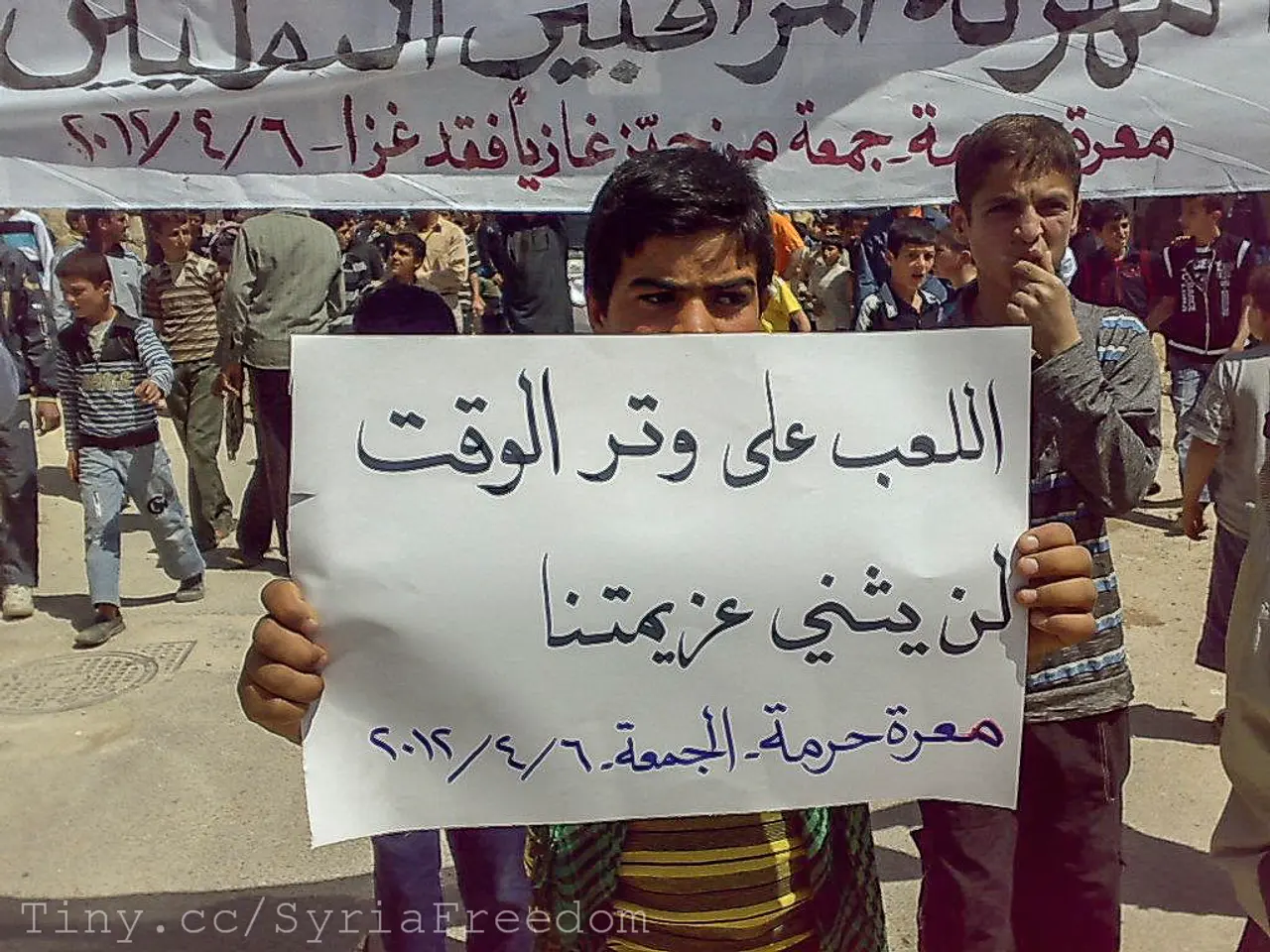Demonstrations Opposing Gaza Conflict Intensify
The ongoing conflict in Gaza remains a complex and delicate matter, with negotiations for a comprehensive agreement marked by partial agreements and stalled implementations.
The current negotiations involve key players such as Israel, led by Prime Minister Benjamin Netanyahu, Hamas, the Palestinian militant group controlling Gaza, mediators including the United States, Egypt, and Qatar, and the United Nations Security Council.
A key ceasefire and hostages-and-prisoners exchange deal was signed between Israel and Hamas on January 17, 2025. This agreement established a phased approach, including a six-week ceasefire, the release of Israeli hostages in exchange for Palestinian prisoners, cessation of active war, Israeli withdrawal from Gaza, and a multi-year reconstruction plan.
However, challenges in fulfilling the terms of this agreement have arisen. For instance, Israel's refusal to withdraw from the Philadelphi corridor as initially agreed, and renewed military escalations. By August 2025, the situation had deteriorated significantly, with Israel planning a takeover of Gaza City, a move that the UN warns could trigger severe humanitarian consequences and a new chapter of conflict.
Israel's strategy now reportedly includes disarming Hamas, controlling Gaza security, and establishing an alternative civilian administration, with plans for significant civilian displacement in Gaza City over the coming months.
Military analysts predict that the operation could last for weeks or months. UN Secretary-General António Guterres has warned of a "dangerous escalation" due to Israel's planned conquest of Gaza.
International organizations have called for adherence to international law and increased aid access, as the humanitarian crisis in Gaza remains severe.
Meanwhile, mediators Qatar and the USA are reportedly working on a new proposal for a comprehensive agreement to end the war, which is expected to be presented to the warring parties within the next two weeks.
The Gaza war began on October 7, 2023, and has resulted in approximately 1,200 deaths and more than 61,000 fatalities, according to the Gaza health ministry controlled by Hamas.
The Forum of Hostages' Families in Israel has demanded a comprehensive agreement to end the war during mass protests, fearing that the capture of Gaza would mean a death sentence for their loved ones, as there are still 20 live hostages in the hands of Hamas.
Germany, Britain, Italy, New Zealand, and Australia have criticized the plans to occupy the city of Gaza, with Germany's Chancellor Friedrich Merz announcing that no exports of arms goods that could be used in the Gaza war would be approved for the time being.
Israeli Prime Minister Benjamin Netanyahu has accused Germany of rewarding Hamas with this decision. US special envoy Steve Witkoff reportedly met with Qatari Prime Minister Mohammed bin Abdulrahman Al Thani in Ibiza, Spain, for this purpose.
Intensive contacts are taking place, mediated by the USA, Egypt, and Qatar, with the aim of preventing a full Israeli takeover of the Gaza Strip. The UN Security Council is set to discuss Israel's war plans in an emergency meeting starting at 16:00 CET today.
Hundreds of thousands of Palestinians live in Gaza City, the largest population center in the northern part of the Gaza Strip. After the war, an alternative civilian government would be established in the Gaza Strip.
References: [1] Article 1 [2] Article 2 [3] Article 3
other war-and-conflicts in the Middle East, such as the ongoing Gaza conflict, frequently intertwine with politics and general news, making them significant topics of discussion in international circles. The UN Security Council and various mediators, including Qatar and the United States, are currently working on a new proposal for a comprehensive agreement to end the Gaza war, aiming to prevent a full Israeli takeover of the area.







